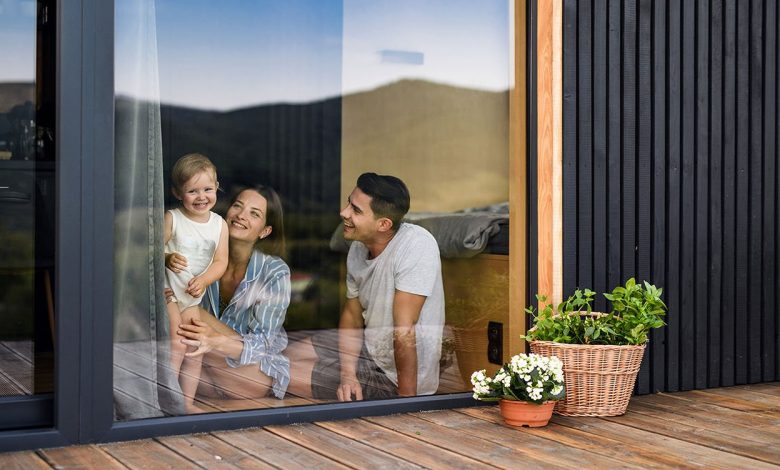Energy-Efficient Home Upgrades: Transform Your Home for Sustainability and Savings

In recent years, the importance of energy efficiency has become increasingly clear. As energy costs continue to rise and environmental concerns grow, homeowners are looking for ways to reduce their energy consumption while maintaining comfort. Energy-efficient home upgrades are an excellent solution that not only helps save money on utility bills but also contributes to a more sustainable future. In this article, we will explore various energy-efficient home upgrades that can enhance your living space, improve your home’s overall performance, and lower your environmental impact.
The Importance of Energy Efficiency
Energy efficiency refers to using less energy to perform the same tasks or achieve the same level of comfort. With the growing demand for energy and the depletion of natural resources, energy efficiency has become a crucial consideration for homeowners. By implementing energy-efficient upgrades, homeowners can reduce their energy consumption, lower their utility bills, and decrease the amount of greenhouse gas emissions that contribute to climate change. Moreover, many energy-efficient home upgrades increase the overall value of a property, making it an attractive option for those looking to improve their homes in a financially and environmentally responsible way.
Energy-Efficient Windows and Doors
One of the most impactful energy-efficient upgrades for a home is replacing old, drafty windows and doors with energy-efficient models. Traditional windows and doors can lead to significant heat loss, especially during the colder months, forcing your HVAC system to work harder to maintain a comfortable indoor temperature. Energy-efficient windows are designed to minimize heat transfer, keeping warm air inside during the winter and cool air inside during the summer. This can significantly reduce heating and cooling costs.
Energy-efficient doors also provide similar benefits. Modern doors come with better insulation, tighter seals, and more durable materials, which help prevent drafts and maintain a comfortable indoor environment. By upgrading your windows and doors, you can improve your home’s overall energy efficiency while enhancing its curb appeal.
Insulation Upgrades
Proper insulation plays a crucial role in maintaining a comfortable temperature in your home while minimizing energy consumption. Without adequate insulation, heat can escape in the winter, and cool air can dissipate during the summer. This means your heating and cooling systems need to work harder, leading to higher energy bills and greater environmental impact.
There are several areas in your home where insulation upgrades can be particularly effective. Attics, walls, floors, and basements are common areas where insulation improvements can reduce energy loss. For instance, blown-in or spray foam insulation in the attic can help trap heat in the winter and keep your home cool in the summer. Insulating walls, floors, and basements also plays a significant role in reducing energy consumption. By ensuring that your home is well-insulated, you can maintain a more consistent indoor temperature and save on heating and cooling costs.
Energy-Efficient Appliances
Another effective way to upgrade your home for energy efficiency is by replacing outdated appliances with newer, energy-efficient models. Energy-efficient appliances are designed to use less energy to perform the same tasks, making them an excellent investment for homeowners looking to reduce their carbon footprint and lower their energy bills.
Many household appliances, such as refrigerators, washing machines, dishwashers, and air conditioning units, come with energy efficiency ratings, such as the Energy Star label. These appliances are engineered to meet strict energy efficiency guidelines, reducing the amount of energy they use compared to standard models. By upgrading to energy-efficient appliances, homeowners can make a noticeable difference in their overall energy consumption while enjoying the benefits of modern, high-performance equipment.
LED Lighting and Smart Lighting Systems
Lighting is another area where energy-efficient upgrades can yield significant results. Traditional incandescent bulbs consume a large amount of energy and have a relatively short lifespan. Switching to LED (light-emitting diode) bulbs can provide the same level of illumination while using a fraction of the energy. LED bulbs are much more efficient, lasting longer and consuming less electricity, which translates into savings on your energy bills.
In addition to LED bulbs, smart lighting systems can further enhance energy efficiency in your home. Smart lighting allows you to control your lights remotely, set timers, or use motion sensors to ensure lights are only on when needed. By incorporating both LED bulbs and smart lighting controls, homeowners can reduce unnecessary energy use and create a more efficient, eco-friendly lighting system in their homes.
Smart Thermostats and HVAC System Upgrades
Upgrading your heating, ventilation, and air conditioning (HVAC) system is another essential step toward achieving a more energy-efficient home. Older HVAC systems may be inefficient, leading to higher energy bills and less effective climate control. By investing in a modern, energy-efficient HVAC system, homeowners can reduce their energy consumption and improve indoor comfort.
One of the most effective HVAC upgrades is the installation of a smart thermostat. A smart thermostat allows you to control the temperature of your home remotely and adjust settings based on your schedule. For example, you can program the thermostat to lower the temperature when you’re away from home or at night, ensuring that energy is not wasted. Additionally, many smart thermostats learn your preferences over time, optimizing energy usage for maximum savings and comfort.
Solar Power Systems
For homeowners looking to take energy efficiency to the next level, installing a solar power system is an excellent option. Solar panels harness the power of the sun to generate electricity for your home, significantly reducing your reliance on the grid and lowering your energy costs. Solar power is renewable, which means it’s a clean energy source that doesn’t produce harmful emissions or contribute to climate change.
In addition to reducing energy bills, installing solar panels can increase the value of your home and provide long-term financial benefits. Many homeowners who invest in solar power systems see a return on their investment through lower utility bills and government incentives or tax credits. Solar power is an effective way to reduce your environmental impact while enjoying the financial rewards of energy independence.
Water Conservation Upgrades
Water conservation is another key aspect of energy efficiency, especially when it comes to heating water. Installing energy-efficient water fixtures, such as low-flow showerheads, faucets, and toilets, can reduce water usage and the amount of energy required to heat it. Additionally, upgrading to a tankless water heater can provide instant hot water while using less energy than traditional water heaters.
Tankless water heaters only heat water when needed, eliminating the energy waste associated with constantly maintaining a reservoir of hot water. These units are compact, energy-efficient, and can save homeowners money on their utility bills over time. By incorporating water-saving devices and efficient water heaters, homeowners can significantly reduce both water and energy consumption, contributing to a more sustainable household.
Conclusion
Energy-efficient home upgrades provide a wealth of benefits that go beyond just reducing your utility bills. By investing in energy-efficient improvements, homeowners can increase the value of their property, reduce their environmental impact, and enjoy greater comfort throughout the year. From upgrading insulation and windows to installing solar panels and energy-efficient appliances, there are many ways to improve the efficiency of your home.
In addition to the immediate savings on energy costs, many energy-efficient upgrades pay off in the long run through increased home value and a reduced need for repairs or replacements. These upgrades also help create a more sustainable future by reducing reliance on nonrenewable energy sources and minimizing carbon emissions. Whether you are planning to sell your home or simply looking to make it more efficient, energy-efficient upgrades are a wise investment that will benefit both your wallet and the planet.




